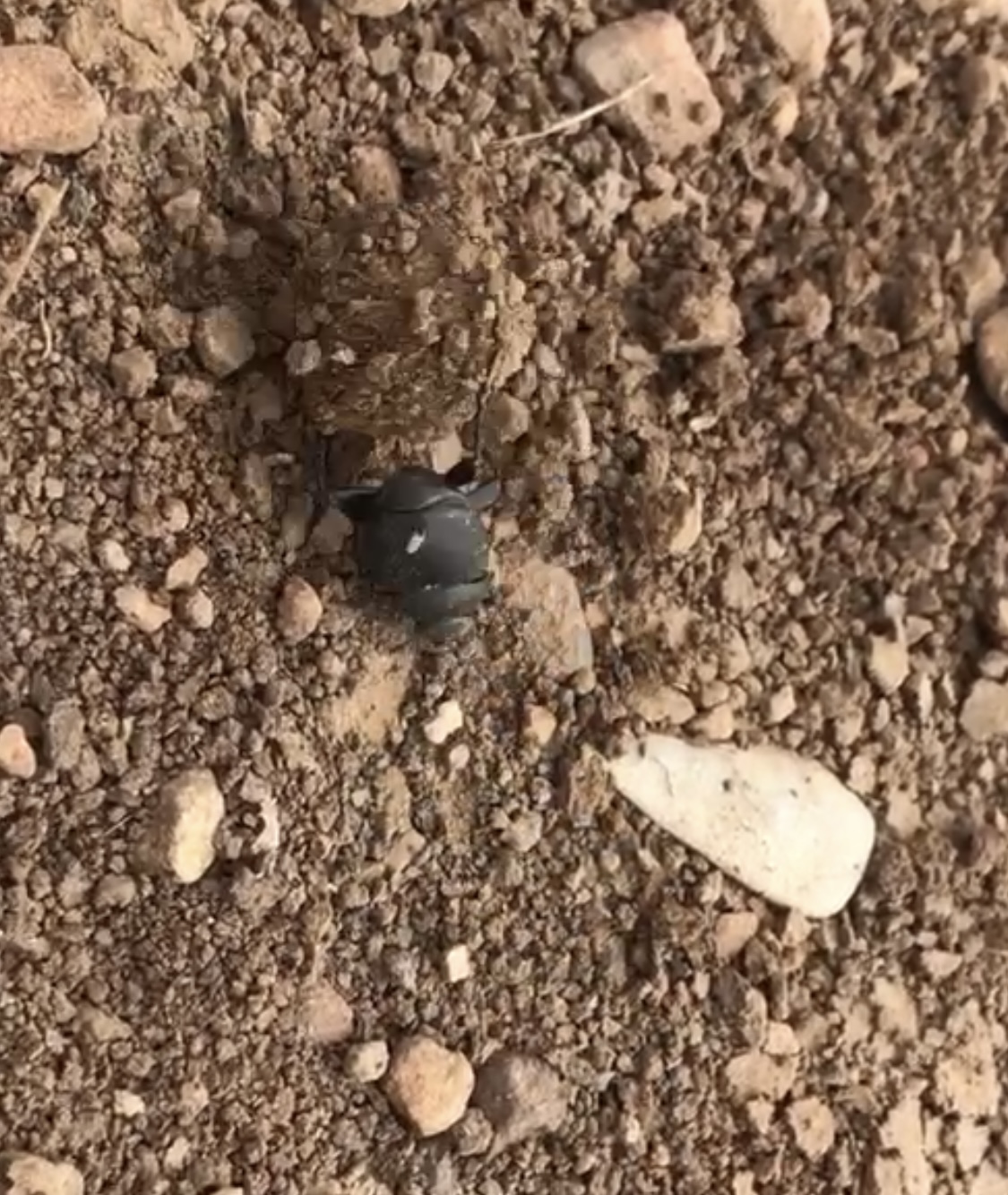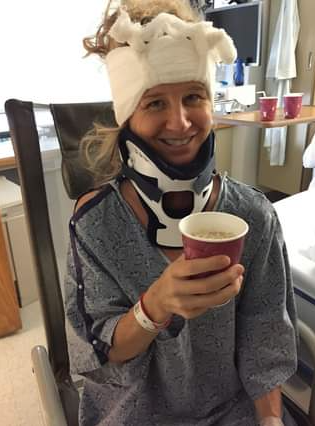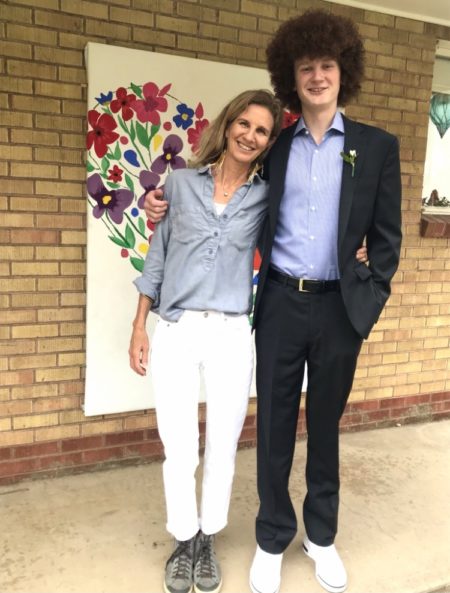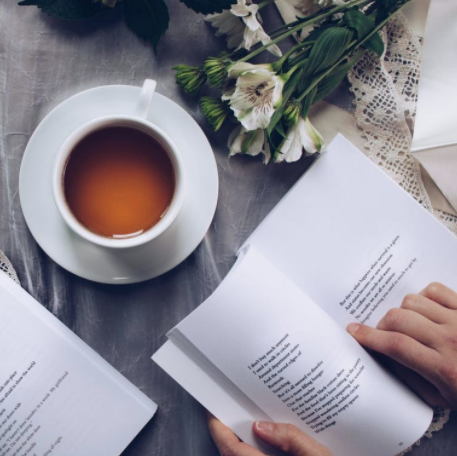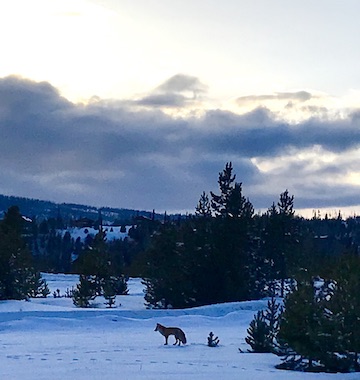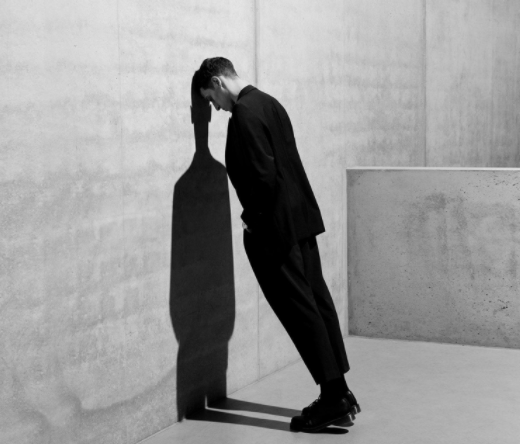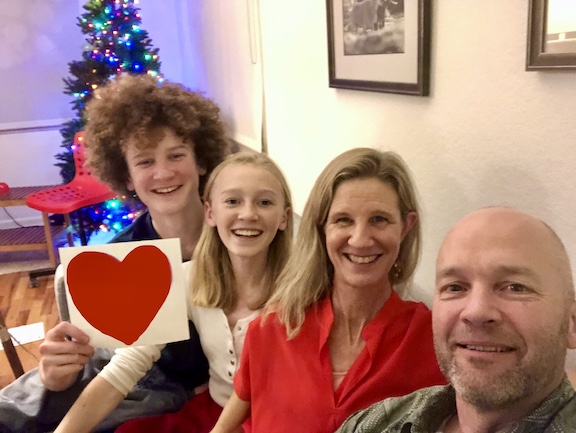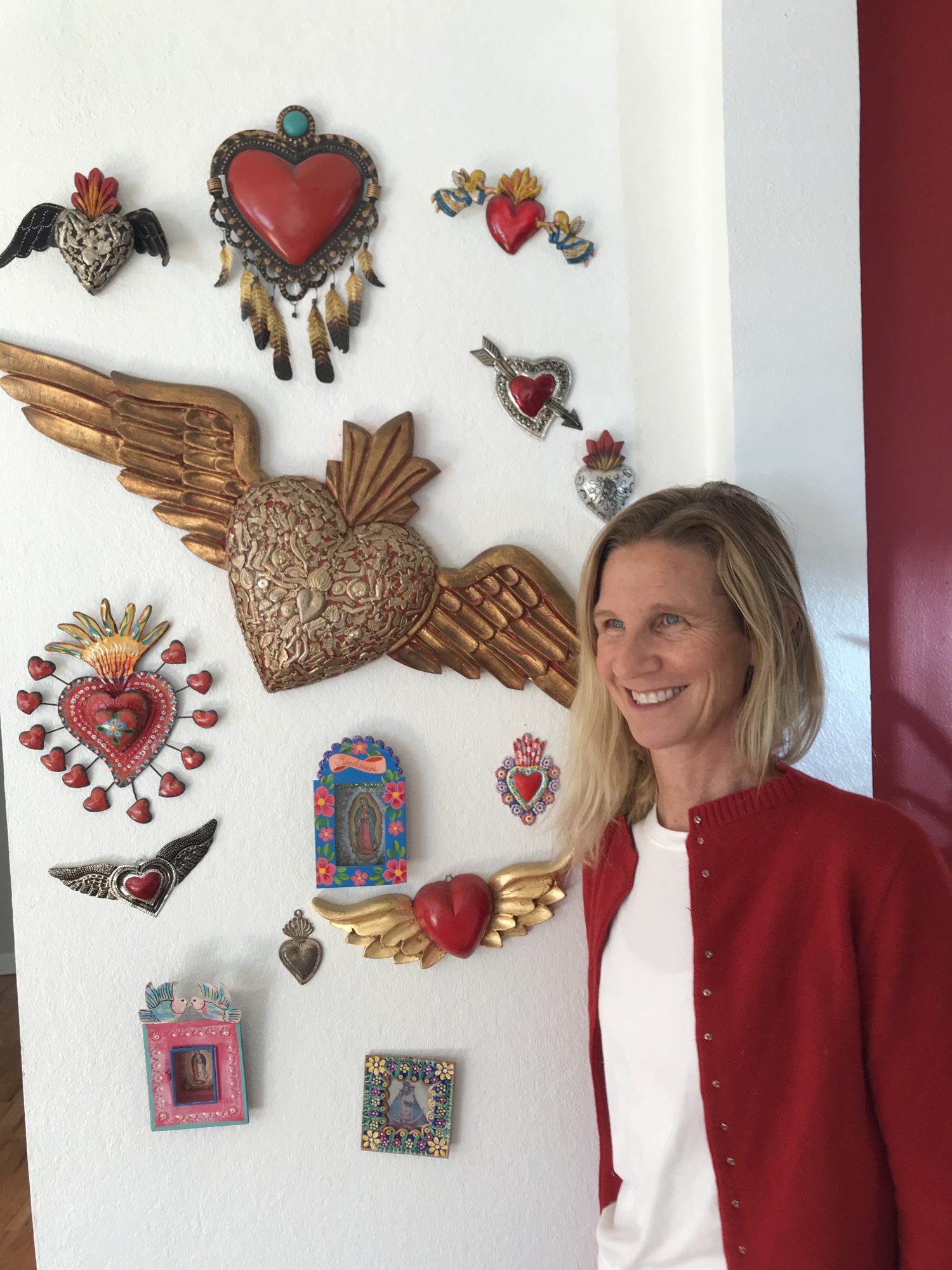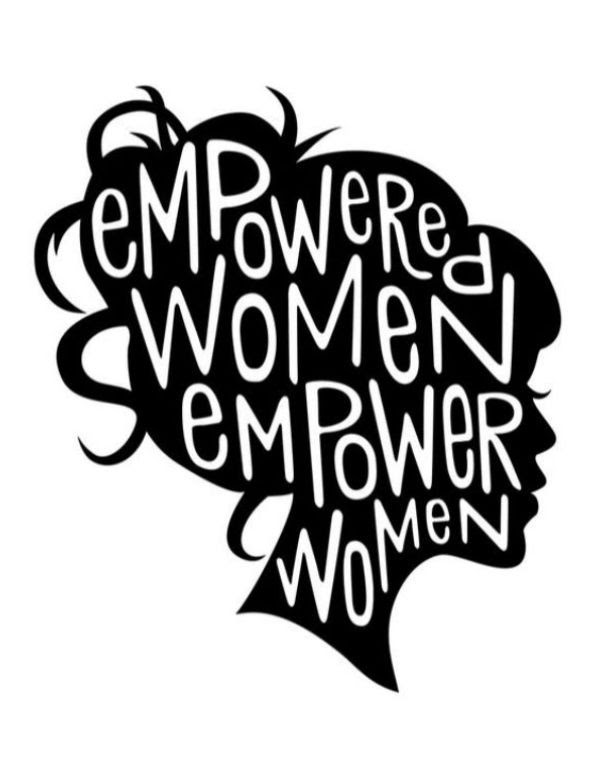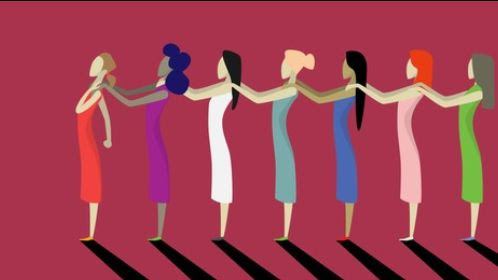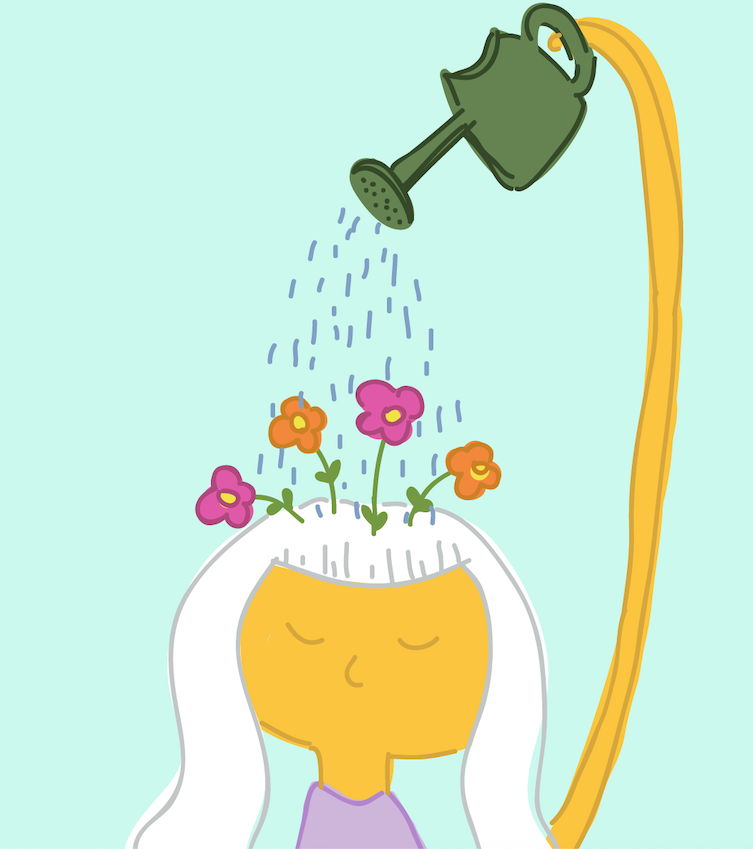Sometimes the world feels like a big ball of poop and I am the dung beetle, pushing it uphill and backwards, blind to where I am going. Do you know what I mean?
This act of staying alive is hard work and yet the hill keeps getting steeper with the Delta variant raging, wildfires multiplying, and humans screaming at each other over wearing masks. There is no immediate cure, and the challenge continues. I felt overwhelmed, depleted, and worn down by it all. Then my friend and I stumbled upon a few dung beetles on the trail.
“it is a serious thing // just to be alive / on this fresh morning / in this broken world.”
― Mary Oliver, Red Bird
I didn’t know we had dung beetles in Colorado. But there they were, hard at work, pushing dung balls three times their size, uphill. Watch the video to see how they do it. It’s incredible. They steer their manure pile upside down and backwards, using only their hind legs.
It’s not easy being a dung beetle. I mean, How do they roll the balls of dung in a straight line when their heads are down?
click here to see short movie I took of a dungbeetle
I did a little reading. Studies show that dung beetles use the path of the sun and the stars to guide them. When researchers placed tiny cardboard hats on the beetles that blocked their views of the stars, the scientists observed that the beetles just “rolled around and around and around in circles.” Once the hats were off, the beetles moved their balls of dung on a straight course. But how? Sometimes, the dung beetles climb atop their globes of manure, raise their little arms to the sky, and do what looks like a dance.
Scientists have since discovered that when the beetles do this dance, they are taking a mental snapshot of the sky. They use this snapshot to navigate in a straight line when they go back to work, heads down.
It turns out that one mental picture of the night sky is all they need to navigate a clear path. Until the way forward is no longer obvious. Then they climb back atop the dung, do another dance, and take a fresh picture.
We are all in the gutter, but some of us are looking at the stars. –Oscar Wilde
If tiny, tiny brains can solve complex problems, so can we.
If we are the dung beetles, feeling the full weight of this planet, it’s easy to get lost and spin in circles. It’s time to climb above the sh** and get a new picture of the way forward.
To gain perspective, take stock of where you are. See clearly what’s around you. Then plot your course. You may end up changing directions based on where you are now. A straight path doesn’t mean no jogs or tacks; it means that on average, looking back, it was a straight course.
Maybe the dung beetles are giving us the recipe for how to get through a personal crisis, plus another day worrying about Afghanistan, Haiti, the next hurricane, or the next variant.
Discipline and dream. Head down and eyes to the sky. They are not opposites. They are the key ingredients to turning sh** into Shinola. And for moving forward in uncertainty. Do the work, yes, but stay loose, open to change. Continually trust that there is more to see than this massive ball of manure. Go somewhere with a little height and a clear view of the skies, and dance.
Love,
Susie
***

